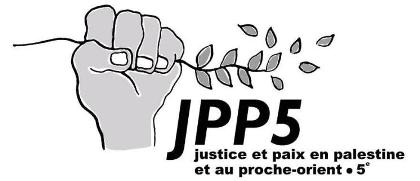Charlotte Silver Rights and Accountability 6 February 2017

Israeli bulldozers work on a new Israeli settler road, in Nabi Elias village, in the occupied West Bank, on 6 February. Some 700 olive trees were uprooted from private Palestinian land to build the road.
Ahmad Al-Bazz ActiveStillsLate Monday night, Israel’s parliament, the Knesset, approved a bill to retroactively legalize the expropriation by settlers of private Palestinian land that has taken place over the last two decades.
Passed by 60-52, the so-called Regularization Bill will legalize around 4,000 settlement homes in so-called unauthorized outposts and settlements.
Human Rights Watch swiftly condemned the vote, noting that the Regularization Bill “undoes years of established Israeli law and, coming just weeks after the [UN] Security Council’s unanimous passage of Resolution 2334 on the illegality of settlements, reflects Israel’s manifest disregard of international law.”
The group added that the law “entrenches the current reality in the West Bank of de facto permanent occupation where Israeli settlers and Palestinians living in the same territory are subject to ‘separate and unequal’ systems of laws, rules and services.”
The law will grant recognition to 53 of the approximately 100 outposts, expropriating 2,000 acres of private Palestinian land, according to anti-settlement group Peace Now.
It will also deny Palestinian owners the right to claim the land until there is a “diplomatic resolution to the status of the territories.”
The law allows justice minister Ayelet Shaked to expand the list of outposts that will gain legal status.
All settlements are illegal
Moves to legalize outposts have been underway for several years. Last summer, The New York Times revealed that one-third of the outposts had already been retroactively legalized or were on their way, through a policy initiated in 2011.
Adalah, a legal advocacy group for Palestinians in Israel, has vowed to challenge the law in the Israeli high court.
“This sweeping and dangerous law permits the expropriation of vast tracts of private Palestinian land, giving absolute preference to the political interests of Israel as an occupying power and to Israeli settlers,” Adalah lawyer Suhad Bishara told the Associated Press.
While Israel’s high court has tended to rule in favor of Israel’s settlement enterprise, it has ruled against settlements built on private Palestinian land.
Israel’s attorney general Avichai Mendelblit has said he won’t defend the law in the high court, calling it unconstititional and illegal under international law.
Since Israel stopped officially establishing new settlements after it signed the Oslo accords in the early 1990s, it began surreptitiously funding and supporting settler groups to colonize West Bank hilltops, property that belongs to Palestinians.
These became known as “outposts,” technically illegal even under Israeli law, but supported by the government.
Israel also gets around the high court’s prohibition by simply redesignating vast tracts of private Palestinian land as “state land.”
All Israel’s settlements and outposts in the West Bank are illegal under international law.
Towards annexation
According to The Jerusalem Post, this is the first time the Knesset has formally attempted to legislate in Area C, the approximately 60 percent of the West Bank left under full Israeli military control under the Oslo agreements.
Calling the law “evil and dangerous,” former Likud minister Dan Meridor noted that Palestinians in the West Bank “did not vote for the Knesset, and it has no authority to legislate for them. These are basic principles of democracy and Israeli law.”
Though it is unlikely that many Palestinians would see Israel’s decades-long military rule as any more democratic or respectful of their rights.
Peace Now has described the law as a “big step towards annexation.”
Right-wing Israeli newspaper The Jerusalem Post called the legislation the “most significant event in the settlement movement since the 2005 withdrawal,” referring to Israel’s removal of its military and settlers from the occupied Gaza Strip and a small part of the West Bank. The newspaper also called the law the “first step toward annexation of Area C.”
Appeasing settlers
But as much as the bill may signal Israel’s move towards annexation, it has also been used to score political points with the powerful settler movement.
Israeli Prime Minister Benjamin Netanyahu initially opposed the bill, warning his cabinet that it would land its backers at the International Criminal Court in The Hague.
But his position has shifted as the bill gained popularity within his coalition.
It was advanced in late 2016, as the Amona outpost approached its court-ordered deadline to evacuate.
As the Amona settlers were removed on 1 February, the Israeli government announced plans to build thousands of new settlement homes elsewhere in the West Bank.
The most vocal supporter of annexation is the Jewish Home party, led by education minister Naftali Bennett.
A strong competitor to Netanyahu’s Likud party for right-wing support, Bennett had accused Netanyahu of trying to delay a final vote on the bill.
On Monday, after meeting with UK Prime Minister Theresa May in London and reportedly speaking to the White House, Netanyahu scheduled a vote on the bill.
His decision came even though May had told Netanyahu that the bill “is unhelpful and would make things more difficult for Israel’s friends around the world,” the Tel Aviv newspaper *Haaretz reported.
In a surprise move on Friday, the administration of US President Donald Trump issued a public warning to Israel over its accelerating construction of settlements in the occupied West Bank.
Though this statement is considerably softer than past US rhetoric on settlement construction, it was perceived as relatively stern in light of expectations that Trump would relax even further any obstacles to Israeli colonialism and militarism.






